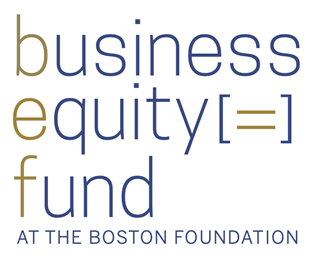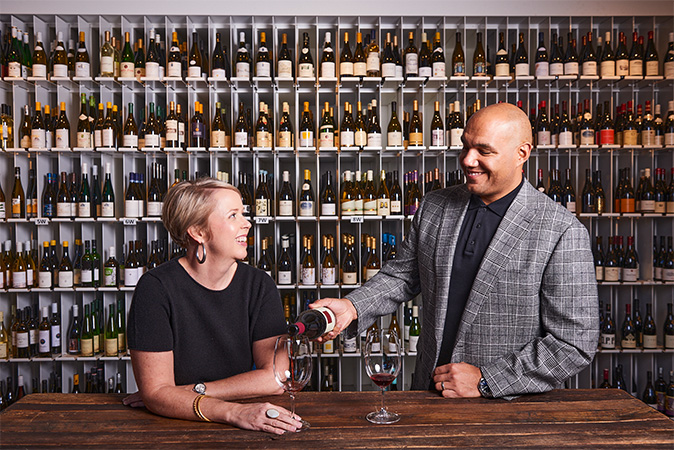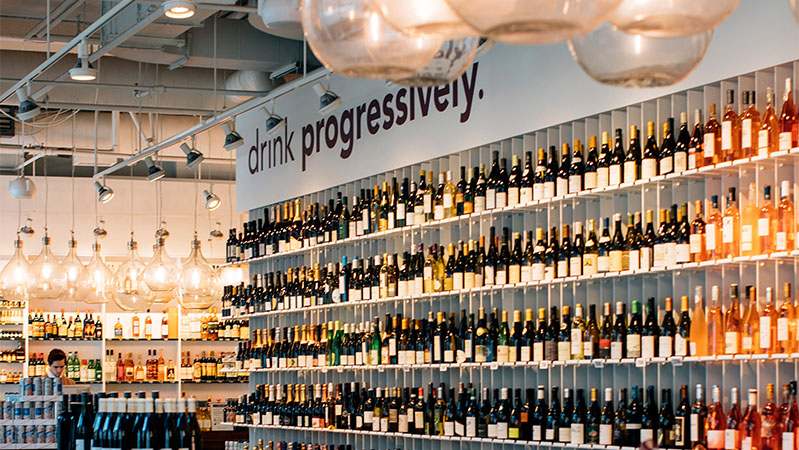Business Equity Fund loan allows Urban Grape to launch Drink Progressively Group
New loan brings BEF support of minority-owned businesses to $6.1 million in ‘patient capital’ for growth
February 24, 2023
Boston – The Business Equity Fund at the Boston Foundation is pleased to announce the completion of a $550,000 low-interest loan agreement with the Urban Grape that will allow the certified minority business enterprise (MBE) to expand its footprint and create jobs through the newly-formed Drink Progressively Group. The investment is the seventeenth by the Business Equity Fund, which was established to help businesses of color employ more people, build more wealth, and thrive.
The BEF offers flexible financing and patient capital to businesses positioned for growth. So far, through a competitive application process, ten companies have received a combined total of $3 million in low-cost loans. Through these loans and a partnership with Mill Cities Community Investments (MCCI), a total of 17 companies have been able to access $6.1 million in capital to expand, creating jobs and new opportunities.
“Entrepreneurs like me start small businesses because we believe our ideas have the power to disrupt stale industries. But too often, we find ourselves on the outside looking in as non-minority-founded businesses scoop up equity investments, loans, and other sources of capital. Whether or not you can grow your company depends on your network and who you know, as opposed to solely how good your ideas are,” said TJ Douglas, who co-founded the Urban Grape with his wife Hadley in 2010. “I am deeply appreciative to the teams at the Business Equity Initiative, the Business Equity Fund, and the Boston Foundation for their belief in The Urban Grape’s business model and our mission of building community through beverage.”
“Research and the shared experience of Black, Latino and other entrepreneurs of color have long highlighted the lack of access to capital that too many entrepreneurs face both to start businesses and to grow existing ones,” said Orlando Watkins, Vice President and Chief Program Officer at the Boston Foundation, and co-founder of the BEF. “The Business Equity Fund is specifically designed to unlock needed patient growth capital for entrepreneurs who have established successful businesses but cannot overcome the systemic challenges that shut them out of the capital they deserve.”
Like other BEF investment partners, the Urban Grape founders presented plans and demonstrated their readiness for new capital. They also have been able to benefit from two other aspects of the “Business Equity Ecosystem” that includes BEF: The Business Equity Initiative, which provides high-quality consulting and mentoring to Black and Latino businesses, and the Greater Boston Chamber of Commerce’s Pacesetters Initiative, which encourages member companies to spend more of their procurement dollars with businesses owned by people of color.
The Urban Grape Story
Founded by small business entrepreneurs TJ and Hadley Douglas in 2010, The Urban Grape has been a staple business in Boston’s South End community for over a decade. Embracing their “more than a wine store” philosophy, the business has expanded to include frequent in-store events with beverage producers from around the world, a popular Wine Club, a booming corporate events and gifting business, and a wine cellar consulting company for private clients. The store is known for its “Drink Progressively” philosophy, which has a double meaning for the brand. The Urban Grape is known for selling wine by its proprietary Progressive Scale, a unique system of organizing wines by their body, rather than varietal or region. The tagline has also come to represent the company’s philosophy of creating access to the industry for BIPOC consumers, and for shining a spotlight on under-represented producers in the industry through its Producers of Color, LGBTQ+, and Women in Wine collections. The Urban Grape is the largest retail seller of BIPOC-owned and -produced products in the country, frequently selling more products in these categories than national brands like Target and Total Wines.
Already the most successful certified MBE in the wine retail and e-commerce space, The Urban Grape has been poised for national growth for years, but the question of how to grow - and more importantly, how to finance that growth - has hindered the Douglas’ ability to act on their entrepreneurial dreams. Their time spent working with the team at the Business Equity Initiative allowed them to construct a multi-layered plan for business growth, and the investment from the Business Equity Fund is the first step in finding financing to help them fulfill their goals. This low-interest loan from BEF is the seed funding for the newly formed Drink Progressively Group, a Boston-based management company that oversees the work of the Douglas’ business ventures - The Urban Grape, Progressive Wine Company, Urban Cellar Consulting, and the Urban Grape Wine Studies Award for Students of Color. The management company will also oversee the expansion to additional retail stores in other key markets across the country and the development of a robust e-commerce and shipping platform.
“Philanthropic institutions like the Business Equity Fund are currently filling the role that banks, private equity firms, and other investment companies should be excited about,” noted TJ Douglas. “(They are) investing in successful, revenue-generating certified-MBE companies that are poised for substantial growth.”
Decades of systemic barriers have kept business owners of color from building the capital and networks to build and expand their businesses. But when they can obtain that capital, they demonstrate success. In 2021, 83% of Business Equity Fund portfolio companies made new hires, and BEF portfolio companies have averaged 24% post-investment revenue growth, adding an average of $1 million in new annual revenue. Those benefits accrue to workers, too. A survey of BEF portfolio companies found that they paid workers an average of 42% more than their industry peers nationwide and offered benefits such as paid sick and vacation time, health insurance, and professional development.
“Our BEF work aligns perfectly with the Boston Foundation’s commitment to recognize and repair past harms and build new platforms for promoting equity throughout the region,” added Watkins. “By devising new structures and systems that will yield a set of outcomes different from those of traditional commercial banking mechanisms, we can partner with a new set of entrepreneurs to grow their businesses, create quality jobs for Black and Brown workers, and create hubs from which stronger communities, and a stronger region, can develop.
To learn more about the Business Equity Fund, visit the Fund page, or download the Fund's latest Annual Report, which highlights the Fund's impact through the end of 2021.




